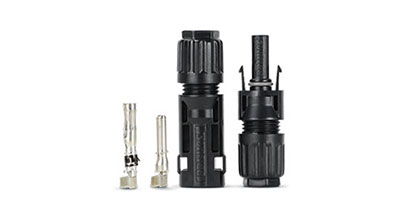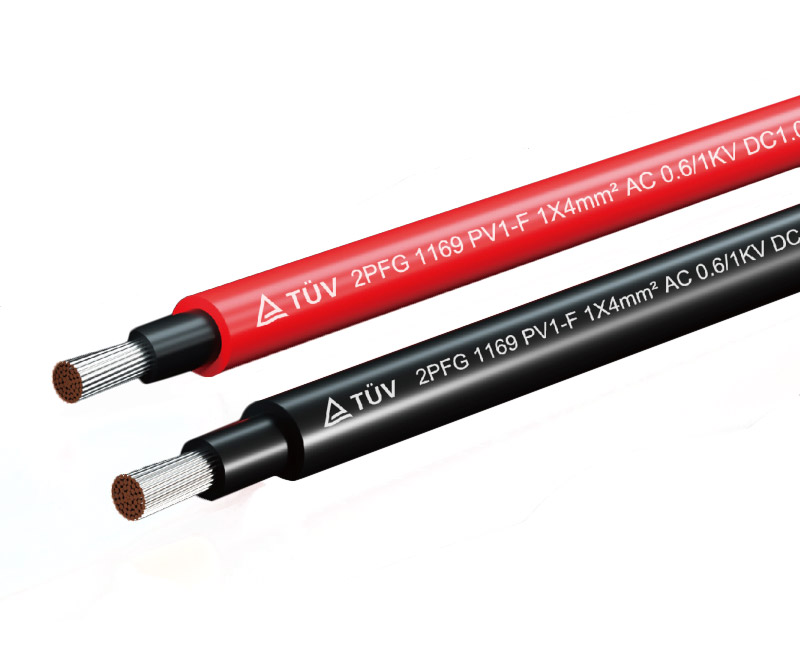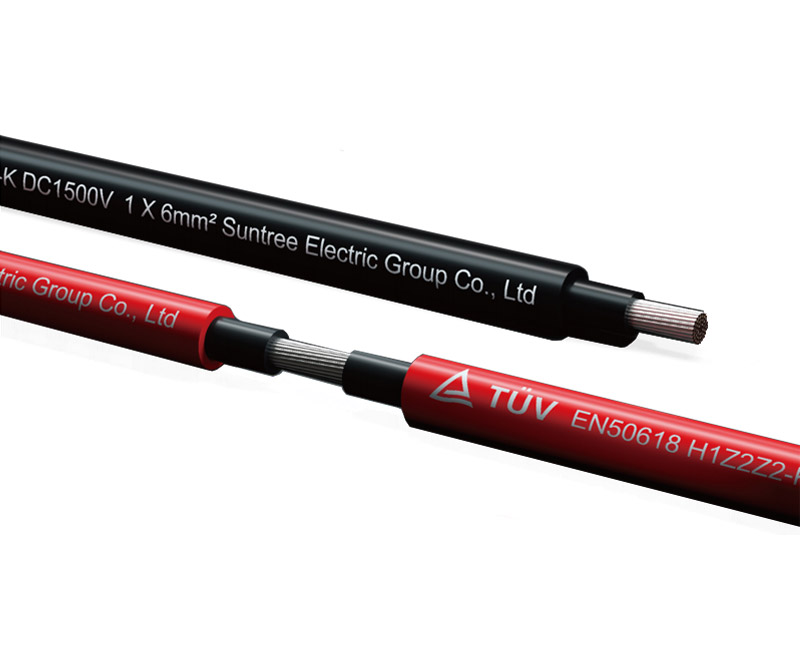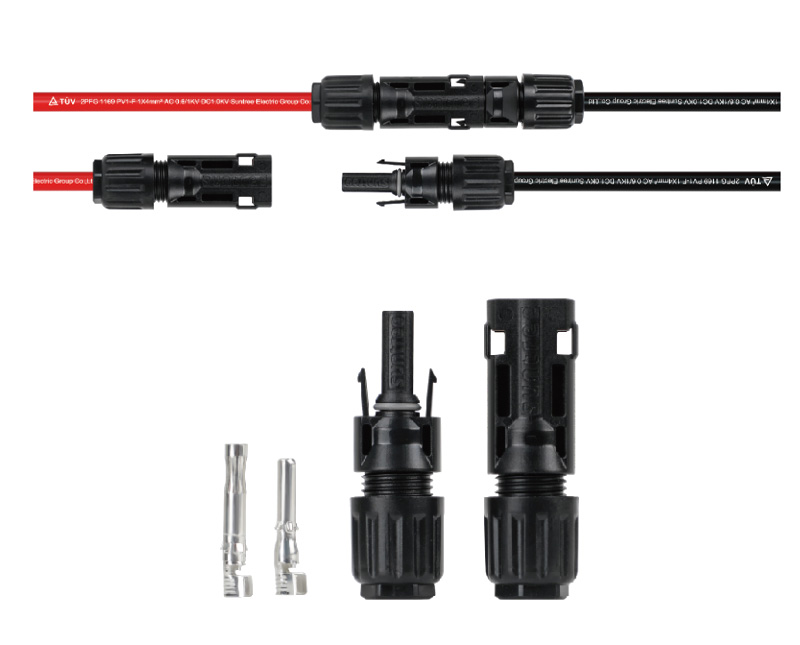The significance of the TUV certification of the German Standard TUV Photovoltaic Cable
At a time when the photovoltaic industry is booming, TUV-certified German standard photovoltaic cables are attracting attention. This book will provide an in-depth explanation of what TUV certification means, answer your questions, and help you make an informed choice.
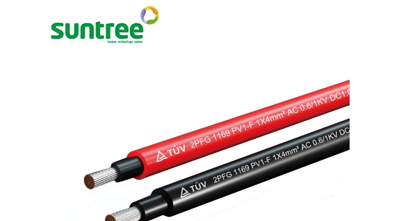
I. Introduction to TUV Certification
TUV certification is a widely recognized and highly respected quality mark in the field of photovoltaic cables. It represents a set of stringent standards and testing procedures that ensure the cables meet the highest levels of safety, performance, and reliability. This certification is not just a formality but a crucial indicator for consumers and industry professionals alike, providing assurance that the cables are suitable for use in demanding photovoltaic applications.
II. Safety Assurance
Fire Resistance and Flame Retardancy
TUV-certified photovoltaic cables are tested to meet strict fire safety standards. They are designed to resist ignition and, in the event of a fire, to limit the spread of flames. This is of utmost importance in solar power installations, which are often located in close proximity to buildings or other structures. By preventing the rapid spread of fire, these cables help protect lives and property, reducing the potential for catastrophic damage.
Electrical Safety
The certification process includes comprehensive electrical safety tests. Cables must demonstrate excellent insulation properties to prevent electrical leakage, short circuits, and other hazards. This ensures that the cables can safely carry the electrical current generated by solar panels without posing a risk to users or the surrounding environment. In addition, TUV-certified cables are designed to withstand voltage surges and other electrical disturbances that may occur in a photovoltaic system, further enhancing their safety.
III. Performance and Reliability
Durability in Harsh Environments
Photovoltaic cables are exposed to a wide range of environmental conditions, including extreme temperatures, UV radiation, moisture, and chemical exposure. TUV certification requires that the cables undergo rigorous testing to ensure their durability in these harsh environments. They must be able to maintain their mechanical and electrical properties over an extended period, ensuring reliable power transmission from the solar panels to the inverter and other components of the system. For example, the cables are tested for resistance to UV degradation, which can cause the insulation to become brittle and crack over time. TUV-certified cables use materials and manufacturing processes that enhance their UV resistance, ensuring a longer service life.
Consistent Electrical Performance
The certification also focuses on the electrical performance of the cables. They must have low resistance to minimize power losses during transmission, which is crucial for maximizing the efficiency of a photovoltaic system. TUV-certified cables are manufactured to precise specifications to ensure consistent electrical performance, with tight tolerances on parameters such as conductor resistance and capacitance. This consistency allows for more accurate system design and better overall performance, reducing the risk of power fluctuations and ensuring stable operation.
IV. Quality Control and Standardization
Manufacturing Process Oversight
TUV-certified manufacturers are required to adhere to strict quality control procedures throughout the production process. This includes regular inspections of raw materials, in-process quality checks, and final product testing. By ensuring that each cable is manufactured to the same high standards, TUV certification helps to eliminate variability in quality and performance. This gives consumers confidence that they are purchasing a reliable product that will perform as expected, regardless of the specific batch or production run.
Compliance with International Standards
TUV certification is based on international standards and norms, which means that TUV-certified photovoltaic cables are recognized and accepted in many countries around the world. This is particularly beneficial for manufacturers and installers who operate in multiple regions, as it simplifies the process of ensuring compliance with local regulations and requirements. It also facilitates the global trade of photovoltaic cables, promoting the growth and development of the renewable energy industry.
V. Consumer Confidence and Market Acceptance
Informed Purchasing Decisions
For consumers, TUV certification provides valuable information when making purchasing decisions. It serves as an independent verification of the cable's quality and performance, allowing consumers to compare different products with confidence. By choosing a TUV-certified cable, consumers can be assured that they are investing in a product that has been thoroughly tested and meets the highest industry standards. This reduces the risk of purchasing inferior or unreliable cables, which could lead to costly repairs, system failures, or safety hazards.
Market Competitiveness
In the highly competitive photovoltaic market, TUV certification gives manufacturers a significant edge. It signals to customers, installers, and investors that their products are of superior quality and reliability. This can lead to increased market share, as consumers are more likely to choose a TUV-certified cable over an uncertified alternative. Additionally, many large-scale solar power projects and utility companies require TUV-certified cables as part of their procurement specifications, further enhancing the marketability of these products.
In conclusion, TUV certification for German Standard photovoltaic cables plays a vital role in ensuring the safety, performance, and reliability of these cables. It provides a comprehensive set of benefits, from protecting lives and property to enhancing the efficiency and longevity of photovoltaic systems. By choosing TUV-certified cables, consumers and industry professionals can have confidence in their investment and contribute to the sustainable growth of the renewable energy sector.

